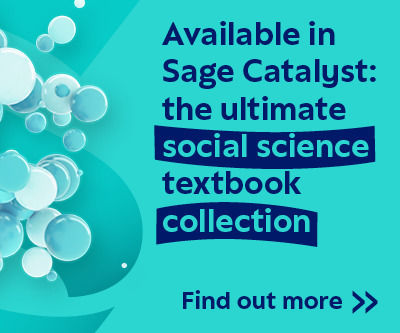Qualitative Research
Analyzing Life
Second Edition
- Johnny Saldana - Arizona State University, USA
- Matt Omasta - Utah State University, USA
April 2021 | 360 pages | SAGE Publications, Inc
Qualitative Research: Analyzing Life, Second Edition presents a fresh approach to teaching and learning qualitative methods for social inquiry—one that focuses on analysis from the very beginning of the text. By exploring qualitative research through a unique analytic lens, then cumulatively elaborating on methods in each successive chapter, this innovative work cultivates a skill set and literacy base that prepares readers to work strategically with empirical materials in their own fieldwork. Johnny Saldaña and Matt Omasta combine clear, accessible writing and analytic insight to show that analysis, in its broadest sense, is a process undertaken throughout the entire research experience. The Second Edition provides a number of updates including more on digital materials and methods, including sentiment analysis of social media data, and ethics in social media research.
Resources for instructors and students are available on a website to accompany the book at: https://edge.sagepub.com/saldanaomasta2e
Resources for instructors and students are available on a website to accompany the book at: https://edge.sagepub.com/saldanaomasta2e
List of Displays
Preface
Acknowledgments
About the Authors
Part I. Analyzing Qualitative Data
Chapter 1. Introduction: Analyzing Life
Chapter 2. Analyzing Field Sites
Chapter 3. Analyzing Documents, Artifacts, Visual Images, and Digital Materials
Chapter 4. Analyzing Interviews: Preparing, Conducting, and Transcribing
Chapter 5. Analyzing Interviews: Condensing and Coding
Part II. Analyzing the Framework
Chapter 6. Analyzing Qualitative Methodologies
Chapter 7. Analyzing Qualitative Research Design
Chapter 8. Analyzing Research Ethics
Part III. Analytic Assemblage
Chapter 9. Analysis to Synthesis: Condensing, Patterning, and Unifying
Chapter 10. Analysis to Synthesis: Understanding, Interpreting, and Theorizing
Chapter 11. Analytic Write-Ups
Chapter 12. Analytic Presentations and Professional Development
Glossary
References
Index
Supplements
Instructor Resources
Password-protected Instructor Resources include the following:
- Word test bank offers a diverse set of test questions and answers for each chapter of the book. Questions of various types are provided for every chapter to help instructors assess students' progress and understanding.
- Editable, chapter-specific Microsoft® PowerPoint® slides offer you complete flexibility in easily creating a multimedia presentation for your course.
- Sample course syllabi for semester and quarter courses provide suggested models for use when creating the syllabi for your courses.
- Additional recommended readings provide a jumping-off point for course assignments, papers, research, group work, and class discussion.
- Full transcripts of the interviews in the book are provided so students can practice coding more easily.
Student Resources
The open-access Student Study Site includes the following:
- Additional recommended readings provide a jumping-off point for course assignments, papers, research, group work, and class discussion.
- Full transcripts of the interviews in the book are provided so students can practice coding more easily.
I have not received my copy yet
London Sport Institute, Middlesex University
July 23, 2021

